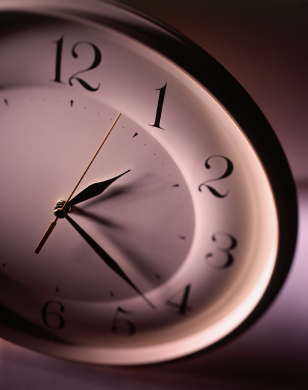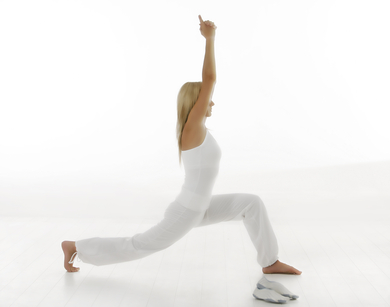Life quality and yoga
Perimenopausal? Menopausal? Are you having difficult sleeping, mood swings, lack of focus and diminished energy? How’s your sexual functioning?
Take one look at that list of woes and it’s no wonder that women sometime want to tear their hair out during menopause. However, there is evidence that attenuating symptoms can help improve quality of life and that certain interventions, including exercise, yoga and/or omega-3 supplements can help.
Medical experts continue to question the value of these interventions during the ‘pause, citing a lack of scientific evidence and conflicting study results. Some even go so far to refer to strategies other than hormone replacement or some other pharmaceutical intervention as ‘snake oil.’ Yet, data continue to evolve that thinking outside the HRT box may help some women and it is for this reason that I wanted to share some newly-published study findings with you.
This latest MsFLASH (Menopausal Strategies: Finding Lasting Answers for Symptoms and Health) study examined 338 women who were randomly assigned to 12 weeks of studio and in home yoga, tri-weekly 40 t0 60 minutes moderate-level cardiovascular training sessions or usual activity. The women were also given and asked to take a daily omega-3 or placebo capsule. Consequently, they were asked to score factors that impact quality of life during menopause, things like vasomotor symptoms, physical functioning, pyschosocial impact and sexual functioning.
The results?
Women who practiced yoga appeared to achieve small but still greater improvements in their overall quality of life (on the basis of the factor scores mentioned above) versus the other inventions. Moreover, it appeared that yoga reduced the extent to which women found their hot flashes bothersome or interfering with daily functioning. Apparently, neither exercise or omega-3s impacted these measures.
The reason for this potential improvement has to do with yoga’s theoretical impact on how balanced the sympathetic nervous system remains in the face of midlife stress and hormonal imbalances. Yoga may help maintain balance and how well or positively we perceive the world around us.
Despite the small, incremental benefit provided by yoga versus exercise or omega-3 supplementation alone, it’s important to emphasize that very few studies have focused on quality of life specifically as it relates to yoga. And, while previous studies have shown benefit, getting women to ‘go the distance’ during these studies has proven difficult.
Mind you, by no means do these study findings suggest that you should give up exercise or omega-3s and switch to yoga. Both of the former strategies have their own benefits. But you may want to consider your quality of life and actions to improve it during menopause and beyond. Yoga practice may be an important part of the puzzle.
Read MoreNewsflash: Yoga and hot flashes
When it comes to alternative strategies for managing hot flashes, where do you turn? I’ve been writing about alternatives for five years now and the only thing I am fairly certain of is that what works for one woman doesn’t necessarily work for the next. Consider the management of menopausal symptoms similar to the management of any condition: the best treatment is always individualized.
Still, mind-body practices tend to rise to fore and evidence continues to accumulate supporting their value and usefulness. This is especially true of meditation, and of yoga.
The latest news on yoga comes from the online edition of Menopause journal and researchers are saying that integral yoga practice may help to reduce hot flash frequency among some women.
Integral yoga integrates the various branches of yoga and focuses on a whole body approach with the goal of transforming the entire being. Experts say that it is especially well suited to hot flashes because it emphasizes stress reduction and decreasing the likelihood of becoming overheated.
To evaluate its usefulness in a more scientific setting, researchers asked a small group of women in perimenopause who reported at least four hot flashes a day to participate in 10 weekly, 90-minutes integral yoga classes comprising breathing, centering medication, physical postures and deep relaxation, or health and wellness classes on different topics relevant to menopause and midlife women’s health or no interventions at all. All had the option to join classes at any time, and were required to fill out diaries about their flashes.
The findings? The researchers say that even after controlling for a potential placebo effect, both the yoga and health and wellness groups tended to follow a similar pattern and a similar significant decline in hot flash frequency. Women in these groups reported an estimated 66% (yoga) and 63% (health/wellness) decrease in the frequency of their hot flashes. And, while the effectiveness of yoga to lower hot flash frequency was not considerably different than that of the health/wellness education classes, the inclusion of the two behavioral interventions may perhaps capture naysayers’ attention; most studies only include on behavioral intervention and having two helps to temper bias.
We need more studies like this one to tease out the benefits of behavioral interventions. The good news is that the information is there for those who look deeply enough.
Read MoreSleep and the ‘pause: valerian and lemon balm?
 Here’s a sobering thought: by the year 2030, over one billion women worldwide will be affected by menopausal symptoms, and that number is projected to increase by 47 million women annually. Sleep issues, namely disruption in sleep patterns caused by hormones, stress, hot flashes, night sweats and aches and pains affect roughly 81% to 83% of women in menopause. Of these, more than half report insomnia.
Here’s a sobering thought: by the year 2030, over one billion women worldwide will be affected by menopausal symptoms, and that number is projected to increase by 47 million women annually. Sleep issues, namely disruption in sleep patterns caused by hormones, stress, hot flashes, night sweats and aches and pains affect roughly 81% to 83% of women in menopause. Of these, more than half report insomnia.
If you do the math, the sleep issue suddenly becomes very, very big!
Short of going the prescription route, there are a variety of strategies that reportedly help. You can read about some of those here. And, I’m happy to add one more: valerian/lemon balm.
Valerian is an herb used in variety of forms since the time of Ancient Greece. Its use in insomnia was first reported in the second century and it was even used during WWII to alleviate stress during air raids. Today, it is widely used for stress and sleep issues. While few adverse effects are associated with valerian, it may interact with benzodiazepines (e.g. xanax), barbituates or drugs that suppress the central nervous system (morphine, propofol); caution is also advised if you are taking St. John’s Wort, kava and melatonin.
Lemon balm also has a long history in traditional medicine, and as long ago as the middle ages, was used to combat stress and anxiety, promote sleep and calm nerves. While it is relatively benign, experts say that caution should be used if you are also taking sedatives or thyroid medications, or antiretroviral agents.
A few safety issues aside, the combination of the two is potentially explosive! According to new study findings, a combination — 160 mg valerian/80 mg lemon balm — in capsule form significantly improved sleep quality, patterns of sleep and sleep duration in women experiencing menopause symptoms by as much as 36%. In fact, over a month one month period, these improvements were as much as 28% higher than findings in women taking placebo capsules. What’s more, the amount of valerian used in the capsule was more than two- to four-fold lower than doses traditionally used in sleep studies demonstrating significant sleep quality improvements; this speaks to the addition of lemon balm. Additionally, the benefits appear to occur without side effects; no adverse effects were reported.
Sleep and the ‘pause….valerian and lemon balm might just do the trick!
Read MoreWork and the ‘pause: a two way street
Can you believe that three years has passed since I first wrote about Amanda Griffith’s study on menopause and work? The final results are in and they are fairly indicative of the issues that menopause brings to the work environment.
Dr. Griffiths is a professor at the University of Nottingham in the UK. Several years ago, she and her colleagues set out on a journey to discover gender-specific health issues in the workplace other than pregnancy. And, since her target was on women between the ages of 45 and 55, chances are great that the focus would be less on reproductive issues and more on post-reproduction, i.e. menopause. Noting that studies have shown that some women find that their symptoms negatively impact their work life, and that certain work factors, e.g. environment, may increase the intensity of symptoms, Dr. Griffiths also points out that women are generally reluctant to divulge to colleagues or their managers that they are going through menopause. Moreover, even if employers know, what sort of things can they do to help?
Mind you, this study is in the form of an electronic questionnaire and this is the type of design that many will question as introducing bias and issues with recall. However, rest assured, the researchers carefully honed their questions based on an earlier study that was done with a group of women police officers, through one on one interviews with women to discuss the impact of menopause on their health and work and through close review and evaluation by experts in a variety of medical and occupational fields. But enough of the science; let’s get to the meat.
Roughly 900 women were surveyed; about 43% were perimenopausal, 31% in menopause and the rest, on hormones or in menopause due to surgery. Yet, regardless of where they were in their menopause journey, three symptoms were especially problematic when it came to work: feeling less confident, an inability to concentrate and memory issues. Three’s a charm…except when it comes to menopause. The icing on this cake were hot flashes; not only were women unable to control the temperature in their workplace environment (honestly, who does have that ability?!), but having hot flashes became unbearable when the work environments were overly heated or improperly ventilated.
To make a bad situation even worse, over a third of the women said that they worked harder to overcome difficulties so that menopause wouldn’t affect their performance or draw attention to them. Working harder also meant learning the best strategies for coping with their symptoms and worklife. And while, on the surface, this doesn’t sound so terribly awful, can you imagine having to make light of matters, making a list and checking it thrice to avoid mistakes or changing your working hours to hide a condition?!
Managers, take note! What do women want to make their workplace more tolerable? Overwhelmingly, women report that they would be better served if management acknowledged that menopause was a possible health problem and provided more flexible working hours. Better ventilation, air conditioning and temperature control are important. And advice and support? More than 50% of women said that having information and advice from their employers about menopause and coping at work as well as informal support from colleagues would make their work environments more palatable. On the flip side? The researchers say that it might be helpful to explore working women’s attitudes toward their co workers and line managers’ perceptions of menopause; after all, women in the throes of the ‘pause may actually be overestimating others’ abilities to infer menopause status when a hot flash hits and may even have misconceptions about others’ negative perceptions of menopause.
There is no doubt that menopause impacts working ability, environment and relationships. As with any health condition, appropriate support from employers is imperative and may help to reduce stress, help boost performance and insure loyalty. Yet, employers can’t do it alone; women need to be able to communicate their status and their needs. Work and the ‘pause is truly a two way street.
Read MoreWednesday Bubble: Sexual health and hypnosis
You’re getting verrrrrrry…
turned on?
According to a newly reported study during this month’s American Psychological Association Annual Meeting, hypnosis might be the very thing to improve sexual desire and satisfaction.
If you step back, it does make sense. As I’ve written previously, hypnosis may help alleviate the frequency and severity of hot flashes. Think about it: fewer flashes may lead to better sleep and less stress. Both may beget a greater interest in being close, since hot flashes have been alleviated. According to the lead researcher, Dr. Gary Belkin, the warmth from closeness can trigger a hot flash, although admittedly, this is the first I’ve heard of it.
Still, the study, which examined the effect of hypnosis, appeared to suggest significant improvements in overall sexual health. 187 postmenopausal women participated in five weekly hypnosis relaxation sessions in which they received direct and indirect suggestions for relaxation, coolness and mental imagery or structured attention sessions that entailed supportive counseling. They also rated sexual desire and pleasure, symptoms and the degree to which hot flashes appeared to interfere with sex both at the beginning and end of the study.
Elkins reports that after 12 weeks, hypnotic relaxation therapy appeared to significantly improve sexual satisfaction and pleasure and decrease discomfort. And while he acknowledges that postmenopausal sexual health can be affected by factors other than hot flashes, e.g. fatigue, self esteem, partner’s health and the quality of the relationship, the positive effects of hypnosis warrants more research.
Meanwhile, perhaps self-hypnosis can help get those juices flowing again? Who knows?
Read More










